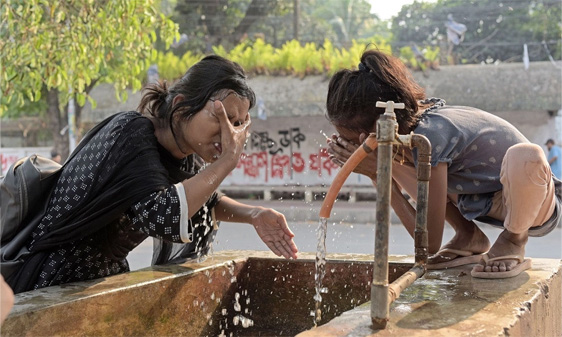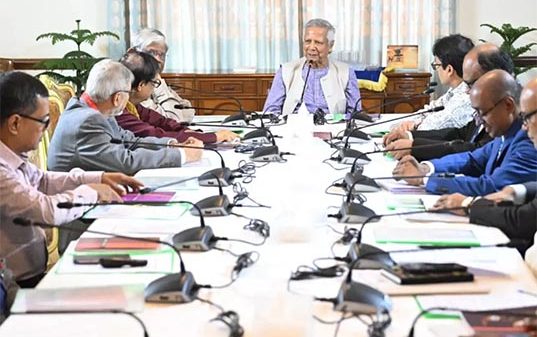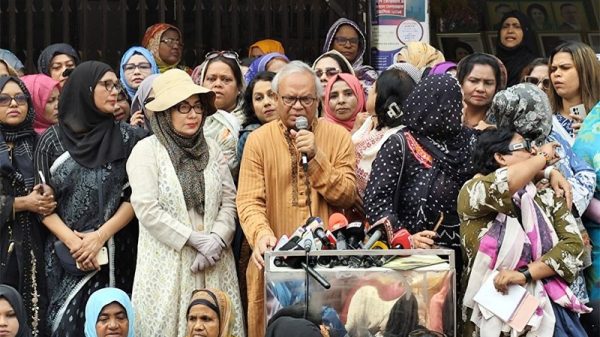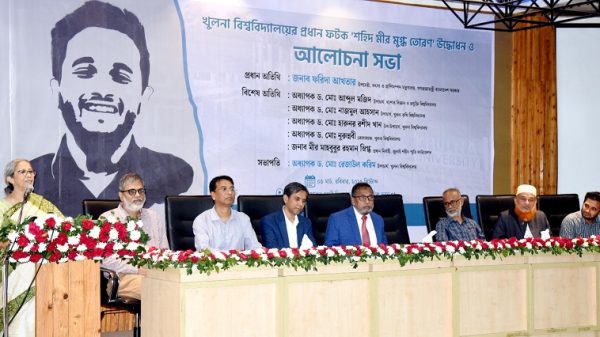Heatwave being considered a ‘disaster’: State Minister for Disaster Management and Relief

- Update Time : Thursday, 2 May, 2024, 03:20 pm
- 54 Time View

Online Desk: With temperatures reaching unbearable levels, there is a call from public health experts and meteorologists to officially declare the heatwave a disaster and to establish a comprehensive action plan to address its impacts. Against this backdrop, the Ministry of Disaster Management and Relief says it is considering the ongoing heatwave in Bangladesh as a “disaster”.
During the current summer season, the country has been experiencing a prolonged period of heat, causing widespread disruption to daily life. Instances of heatstroke have led to fatalities, numerous hospital admissions, and significant damage to crops and fruit trees.
In response to inquiries about whether heatwaves should be declared disaster like droughts, State Minister for Disaster Management and Relief Md. Mohibbur Rahman emphasized, “I certainly would call this extreme heatwave a disaster.”
The ministry is actively gathering data on the severity of the heat, which has caused various forms of damage, including deaths from heatstroke, illness, and agricultural losses. This information will guide their decision on whether to extend financial and other forms of assistance to those affected, the state minister said.
Secretary Md. Kamrul Hasan of the Ministry of Disaster Management and Relief stated that while the government last declared lightning a disaster in 2016, the suggestion to categorize heatwaves similarly is under consideration. The ministry is collecting data on the highest temperatures and their impacts to determine the next steps.
Public health expert and former director of Disease Control at Directorate General of Health Services, Professor Dr. Be-Nazir Ahmed, warned that the current extreme temperatures pose a serious health risk, potentially leading to outbreaks of diseases like cholera.
Dr. Ahmed advocated for strategic planning to prevent heatwave-related deaths and suggested that such a strategy should aim to make the heat more tolerable, including increasing vegetation and maintaining water bodies as cooling measures.
Dr. Md. Zillur Rahman, Dean of the Faculty of Earth and Environmental Sciences at Dhaka University, stressed that preparation is crucial as average temperatures have risen by one degree Celsius from 2011 to 2020. He noted that the country is experiencing hotter summers and emphasized the need for strategies to adapt to these increasing temperatures.
According to the Meteorological Department, a heatwave is categorized based on temperature ranges, with the highest category being “severe” when temperatures exceed 42 degrees Celsius.
On April 20, 2024, the country recorded its highest temperature of the season at 42.6 degrees Celsius in Jashore, indicating the severity of the current heatwave. Schools remained closed due to the extreme heat following the Eid holiday break.
The ministry and experts are considering implementing national strategies to mitigate the effects of heatwaves, emphasizing the need for a proactive approach to protect public health and ensure economic stability in the face of increasing temperatures.










